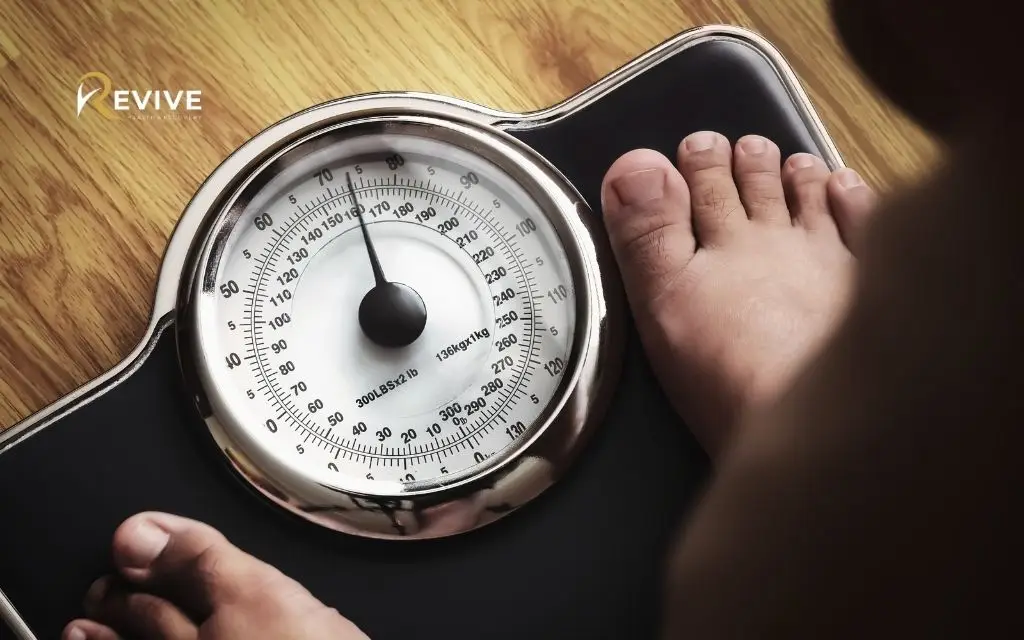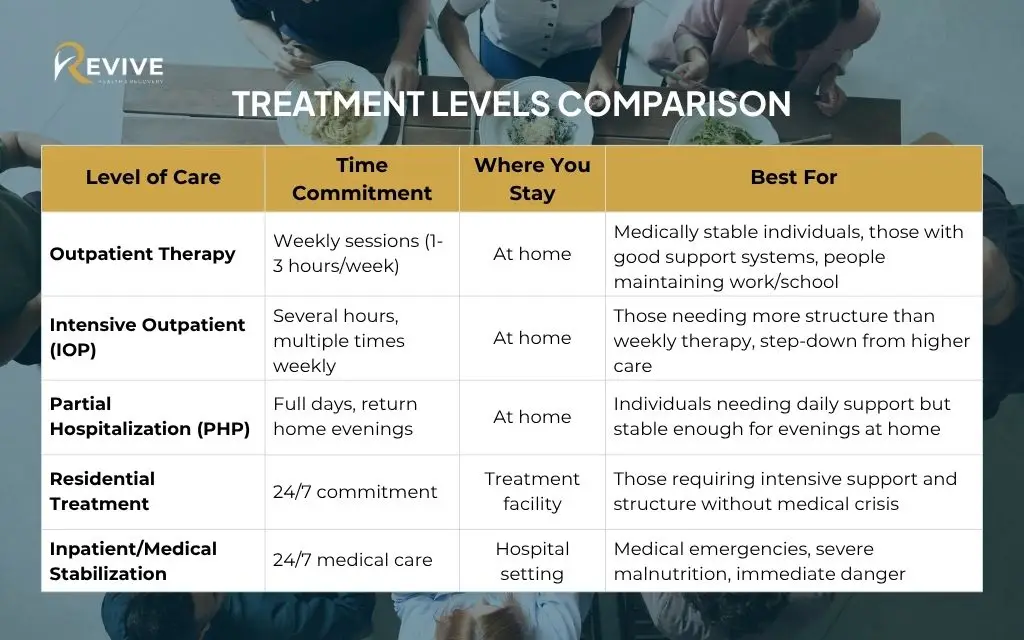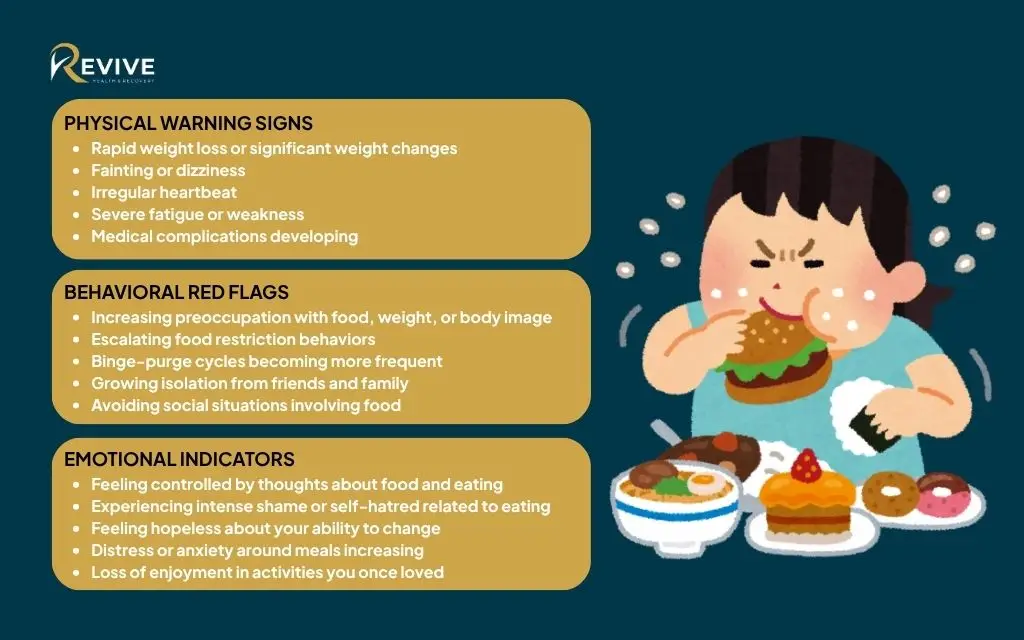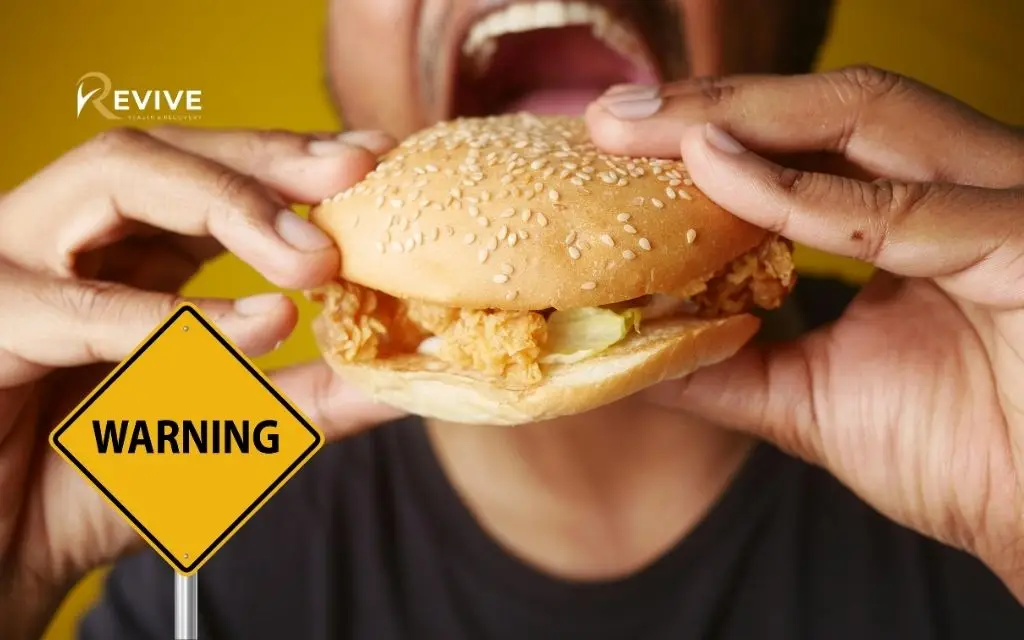If you or someone you care about is struggling with an eating disorder in Denver, know this: you’re not alone, and recovery is possible. Approximately 1 in 10 Coloradans will face an eating disorder in their lifetime, affecting people of all ages, genders, and backgrounds. Mental health treatment for eating disorders involves more than addressing food and weight. It requires comprehensive care that heals the mind, body, and spirit.
At specialized outpatient centers like Revive Health Recovery in Denver, evidence-based therapies including Cognitive Behavioral Therapy, Dialectical Behavior Therapy, and nutritional counseling help individuals break free from disordered eating patterns. Whether you’re dealing with anorexia nervosa, bulimia, binge eating disorder, or co-occurring mental health conditions, outpatient treatment offers flexible support without disrupting your daily life. This guide explores treatment options available in the Denver area, what to expect during recovery, and how to take that first courageous step toward lasting healing.
Understanding eating disorders: More than just food
Eating disorders are serious mental health conditions, not lifestyle choices or displays of vanity. These complex illnesses affect how a person thinks, feels, and behaves around food, eating, and body image. Understanding the nature of these conditions is the first step toward seeking appropriate mental health treatment for eating disorders.

What are eating disorders?
Eating disorders are mental illnesses characterized by persistent disturbances in eating behaviors and related thoughts and emotions. In Colorado, research shows that approximately 9% of residents will experience an eating disorder in their lifetime. These conditions don’t discriminate. They affect people across all demographics, genders, ages, and socioeconomic backgrounds.
Common types of eating disorders include anorexia nervosa, which involves severe food restriction and intense fear of weight gain. Bulimia nervosa features a cycle of binge eating followed by compensatory behaviors like purging or excessive exercise. Binge eating disorder involves recurring episodes of consuming large amounts of food accompanied by feelings of loss of control. Other conditions include ARFID (Avoidant Restrictive Food Intake Disorder) and OSFED (Other Specified Feeding or Eating Disorder), which can be equally serious despite different presentations.
The COVID-19 pandemic led to a significant spike in eating disorder cases across Colorado, prompting new state legislation in 2023 to restrict the sale of diet pills to minors. This legislative action reflects growing recognition of how serious these conditions have become in our communities.
Warning signs and symptoms
Recognizing the warning signs of an eating disorder can save a life. Here are the key indicators to watch for:
Common Warning Signs by Category
| Category | Warning Signs |
| Physical Symptoms | Noticeable weight changes, persistent fatigue, gastrointestinal issues, dizziness, electrolyte imbalances, difficulty concentrating, feeling cold frequently, brittle hair and nails |
| Behavioral Signs | Restricting food intake, skipping meals, eating only “safe” foods, binge eating episodes, purging behaviors (vomiting, laxative use), excessive exercise, withdrawing from social situations involving food, frequent bathroom trips after meals, ritualistic eating (cutting food into tiny pieces) |
| Emotional Indicators | Distorted body image, persistent dissatisfaction with appearance regardless of weight, anxiety or distress around meals, social withdrawal, intense shame or guilt related to eating, severe self-criticism |
| When to Seek Help | Symptoms interfere with daily functioning, physical complications develop, behaviors worsen over time, medical concerns arise, quality of life diminishes |
When these symptoms interfere with daily functioning, cause physical complications, or worsen over time, it’s time to seek professional help. Mental health treatment for eating disorders becomes essential when the condition begins affecting physical health, relationships, work, or quality of life.
Co-occurring mental health conditions
Eating disorders rarely occur in isolation. Depression and anxiety frequently accompany disordered eating patterns, creating a complex interplay between mood and eating behaviors. Many individuals with eating disorders have experienced trauma or have PTSD, and the eating disorder may serve as a coping mechanism for unprocessed trauma.
Substance use disorders and eating disorders often co-occur, with some individuals using drugs or alcohol to suppress appetite or manage emotional distress. Personality disorders, OCD, and body dysmorphic disorder may also be present alongside eating disorders. This is why dual diagnosis eating disorder treatment Colorado providers offer is so vital. Treating only the eating disorder while ignoring co-occurring conditions often leads to relapse. Integrated treatment that addresses all mental health challenges simultaneously yields better outcomes and supports lasting recovery.
At Revive Health Recovery, we specialize in this dual diagnosis approach, recognizing that comprehensive care requires addressing all aspects of your mental health. Our team understands the connections between trauma, mental health challenges, and eating disorders, providing trauma-informed eating disorder care Colorado residents can trust.
Types of mental health treatment for eating disorders in Denver
Denver offers various approaches to treating eating disorders, each designed to meet different needs and severity levels. Understanding the available treatment modalities and levels of care helps you make informed decisions about your recovery path.
Evidence-based therapy approaches
Proven Treatment Modalities
| Therapy Type | Primary Focus | Best For |
| Cognitive Behavioral Therapy (CBT-E) | Changing thought patterns that drive disordered eating behaviors, challenging distorted beliefs about food and body image | Bulimia nervosa, binge eating disorder, individuals ready to examine their thoughts and beliefs |
| Dialectical Behavior Therapy (DBT) | Emotional regulation skills, distress tolerance, mindfulness practices, building alternative coping mechanisms | People who use food behaviors to cope with overwhelming emotions, those needing emotion management skills |
| Family-Based Treatment (FBT) | Actively involving parents and family members in recovery, empowering families to support nutritional rehabilitation at home | Adolescents with eating disorders, families wanting to participate in treatment |
| Acceptance and Commitment Therapy (ACT) | Clarifying personal values, taking action aligned with values rather than being controlled by difficult thoughts about food and body | Individuals struggling with rigid thinking patterns, those seeking values-based recovery |
| Interpersonal Psychotherapy (IPT) | Addressing relationship patterns and interpersonal problems that contribute to the eating disorder | People whose eating disorder relates to relationship difficulties or life transitions |
Cognitive behavioral therapy for bulimia Denver therapists provide has shown strong success rates when delivered by trained specialists. Dialectical behavior therapy eating disorders Colorado treatment centers offer helps build effective coping skills for lasting change.
Levels of care: Finding the right fit
Mental health treatment for eating disorders exists on a continuum, allowing you to receive the appropriate intensity of care based on your current needs.

Eating disorder outpatient programs near Federal Boulevard Denver, like those at Revive Health Recovery, offer accessible care without requiring full-time commitment to treatment. This intensive outpatient program for eating disorders Denver providers offer bridges the gap between weekly therapy and full-time residential care.
Denver is home to the ACUTE Center for Eating Disorders at Denver Health, the only dedicated medical intensive care unit specifically for patients with extreme forms of eating disorders in North America. This specialized facility handles the most medically compromised cases, providing life-saving stabilization.
Your treatment team will help determine the most appropriate level of care based on medical status, symptom severity, co-occurring conditions, and available support. Many people begin at higher levels of care and step down to outpatient treatment as they stabilize.
The multidisciplinary treatment team
Effective mental health treatment for eating disorders requires expertise from multiple disciplines working together.
Your Treatment Team
| Team Member | Role and Responsibilities |
| Therapists and Psychologists | Provide individual and group psychotherapy, help explore underlying issues, develop coping skills, address trauma and mental health challenges |
| Registered Dietitians | Guide nutritional rehabilitation, help develop healthier relationship with food, challenge food rules, introduce fear foods, teach intuitive eating principles |
| Psychiatric Providers | Evaluate need for medication management, treat co-occurring depression, anxiety, or OCD, monitor medication effectiveness |
| Medical Providers | Ensure physical safety, monitor vital signs and lab work, assess cardiovascular health, track nutritional status |
| Family Liaison | Support family members, provide education about eating disorders, facilitate family involvement, coordinate family therapy sessions |
These eating disorder nutritionist Denver CO professionals work together to provide coordinated, comprehensive care. At Revive Health Recovery, our team collaborates closely to ensure all aspects of your recovery receive attention. We recognize that your family members play a vital role in recovery, which is why we offer family services through our dedicated family liaison.
What to expect in eating disorder treatment
Many people hesitate to seek help because they don’t know what treatment involves. Understanding the process can reduce anxiety and help you feel more prepared to take that first step.
Initial assessment and evaluation
Your journey begins with a comprehensive evaluation to understand your unique situation and needs.
Assessment Components
| Assessment Type | What It Includes | Purpose |
| Mental Health Evaluation | Exploration of eating patterns, symptoms, mental health history, treatment goals | Understand your psychological needs and create appropriate treatment plan |
| Medical Assessment | Vital signs, heart function, bone density, nutritional status, lab work for electrolyte levels | Ensure physical safety and identify any medical complications |
| Nutritional Assessment | Current eating patterns, nutritional knowledge, relationship with food, dietary restrictions | Develop appropriate nutritional rehabilitation plan |
| Treatment Planning | Goal setting, level of care determination, therapy modality selection | Create personalized recovery roadmap aligned with your values and readiness |
This collaborative approach ensures that treatment aligns with your values, circumstances, and readiness for change. How to find eating disorder therapist in Denver often begins with this consultation process, where you can determine if a provider feels like the right fit for your needs.
Core components of treatment
- Individual Therapy Weekly or more frequent sessions to process emotions, challenge disordered thoughts, work through trauma, and develop coping strategies.
- Group Therapy Peer support and skills building that reduces isolation. Many find this one of the most powerful aspects of eating disorder recovery support groups Denver area providers facilitate.
- Nutritional Counseling Dietitians help normalize eating patterns, challenge food fears, and develop sustainable eating habits.
- Medical Monitoring Regular vital signs, weight checks, and lab work ensure safety. Denver’s altitude of 5,280 feet requires specialized monitoring due to increased cardiovascular stress and electrolyte considerations.
- Medication Management When appropriate, addresses co-occurring depression or anxiety.
- Family Therapy Helps loved ones understand eating disorders and support your recovery. Family involvement improves outcomes and prevents relapse.
Treatment timeline: How long does recovery take?
Recovery from an eating disorder is a process, not a destination. While everyone wants to know how long treatment will take, the honest answer is that it varies significantly. Most people engage in mental health treatment for eating disorders for months to years rather than weeks.
Factors That Affect Recovery Timeline: Disorder Characteristics
- Severity of symptoms
- Duration of illness before treatment
- Type of eating disorder
- Medical complications present
Factors That Affect Recovery Timeline: Individual Factors
- Co-occurring mental health conditions
- Strength of support system
- Motivation and treatment engagement
- Previous treatment history
Factors That Affect Recovery Timeline: Recovery Phases
- Stabilization: Medical safety and interrupting dangerous behaviors
- Active Treatment: Intensive work on underlying issues and behavior change
- Maintenance: Sustaining recovery gains and preventing relapse
- Long-term Recovery: Independent management with occasional support
It’s important to maintain realistic expectations. Research shows that full recovery is possible, but it requires commitment and patience. Many people experience significant improvement within the first few months of treatment, but continuing work ensures that gains are maintained. Think of recovery as learning a new language. You can communicate effectively after months of study, but becoming truly fluent takes ongoing practice and immersion.
If you’re searching for affordable eating disorder treatment in Denver Colorado, remember that the investment in comprehensive care often costs less in the long run than cycling through inadequate treatment. Contact Revive Health Recovery at (303) 268-4655 to discuss treatment options and insurance coverage that fits your situation.
Specialized eating disorder care in Colorado
Colorado’s unique environment and culture create both opportunities and challenges for eating disorder treatment. Understanding these local factors helps you find care that addresses your specific needs.
Denver’s eating disorder treatment landscape
Denver has developed a robust network of eating disorder treatment resources over recent years. The ACUTE Center at Denver Health provides critical care for the most medically compromised patients, handling cases other facilities cannot manage. Children’s Hospital Colorado operates specialized eating disorder programs for younger patients.
Outpatient centers like Revive Health Recovery fill a crucial gap between intensive residential programs and minimal weekly therapy. Many people need more support than one therapy session per week but don’t require or cannot access full-time residential treatment. Evidence-based eating disorder treatment Colorado outpatient programs provide offers this middle ground, delivering comprehensive care while allowing you to maintain daily responsibilities.
The Rocky Mountain region has seen increased access to specialized care in recent years, though eating disorder specialists remain in high demand. Colorado has one of the highest rates of mental health professional availability per capita in the United States, yet finding therapists specifically trained in eating disorders can still prove challenging.
Addressing Colorado-specific challenges
Unique Treatment Considerations in Colorado
| Challenge | Impact on Treatment | How Providers Address It |
| High Altitude (5,280 feet) | Increased cardiovascular stress, greater electrolyte imbalances during refeeding, higher risk of medical complications | Specialized medical monitoring, adjusted treatment protocols, closer cardiovascular tracking |
| Wellness Culture | Higher rates of orthorexia, exercise addiction masked as dedication, pressure to maintain “healthy” appearance | Address orthorexia specifically, evaluate exercise behaviors, challenge wellness culture messages |
| Outdoor Recreation Focus | Exercise addiction, relative energy deficiency in sport (RED-S), pressure on athletes and outdoor enthusiasts | Sports-specific education, work with coaches, address performance pressure |
| Rural Access Barriers | Limited local specialists, travel difficulties for mountain communities | Expanded telehealth options, virtual treatment availability, hybrid care models |
Virtual treatment options expanded significantly across Colorado after 2020, making care more accessible to residents in rural mountain communities. While in-person treatment offers advantages, telehealth has enabled people in remote areas to access specialized eating disorder care that was previously unavailable to them.
Insurance coverage and affordability in Colorado
Colorado’s mental health parity laws require insurance companies to cover mental health treatment for eating disorders equally with physical health conditions.
Most major insurance plans cover outpatient therapy, psychiatric services, nutritional counseling, and medication management. Medicaid also covers eating disorder treatment in Colorado. Coverage varies by plan, so verify your specific benefits before starting treatment.
Revive Health Recovery accepts most insurance plans. Call us at (303) 268-4655 to discuss your coverage and determine what your plan includes. Payment plans and financial assistance are available for those without insurance or with limited coverage. Don’t let cost concerns prevent you from reaching out.
Taking the first step: How to get help in Denver
The decision to seek help for an eating disorder is often the hardest part of recovery. Understanding what that first step looks like can make reaching out feel less overwhelming.
Recognizing when it’s time to seek help
You don’t have to hit rock bottom to deserve treatment. In fact, early intervention leads to better outcomes and shorter recovery times. If eating disorder symptoms are interfering with your daily life, relationships, work, or physical health, it’s time to reach out for professional support.

Physical Warning Signs
- Rapid weight loss or significant weight changes
- Fainting or dizziness
- Irregular heartbeat
- Severe fatigue or weakness
- Medical complications developing
Behavioral Red Flags
- Increasing preoccupation with food, weight, or body image
- Escalating food restriction behaviors
- Binge-purge cycles becoming more frequent
- Growing isolation from friends and family
- Avoiding social situations involving food
Emotional Indicators
- Feeling controlled by thoughts about food and eating
- Experiencing intense shame or self-hatred related to eating
- Feeling hopeless about your ability to change
- Distress or anxiety around meals increasing
- Loss of enjoyment in activities you once loved
Immediate Help Needed If you’re having thoughts of self-harm or suicide, seek help immediately by calling 988 (Suicide and Crisis Lifeline) or going to your nearest emergency room.
Remember This Eating disorders are mental illnesses, not moral failings or character flaws. Overcoming stigma and shame represents one of the biggest barriers to seeking help. Reaching out for support demonstrates strength and self-awareness, not weakness. Thousands of people have walked this path before you and found recovery on the other side.
Starting your recovery journey
Beginning treatment at Revive Health Recovery involves a straightforward process designed to make getting help as easy as possible.
Your Path to Recovery in 5 Simple Steps
Step 1: Reach Out for a Consultation Call Revive Health Recovery at (303) 268-4655. We’re available 24/7, so you can call whenever feels right for you. During this initial conversation, we’ll answer your questions about our programs and help you understand what to expect.
Step 2: Complete Initial Assessment We conduct a comprehensive evaluation of your mental health, eating disorder symptoms, medical status, and treatment needs. This assessment helps us understand your unique situation and create a treatment plan tailored to your specific goals.
Step 3: Discuss Treatment Options Based on your assessment, our team will recommend an appropriate level of care and explain what each component of your treatment will involve. You’ll have the opportunity to ask questions and voice any concerns.
Step 4: Verify Insurance Coverage We’ll work with your insurance company to determine what services are covered and explain any out-of-pocket costs you might have. We want you to understand the financial aspects of treatment before you begin.
Step 5: Begin Treatment Start with your first therapy session and meet your treatment team. This team will include your individual therapist, dietitian if nutritional counseling is part of your plan, and other providers who will support your recovery.
Starting mental health treatment for eating disorders is a courageous decision that can transform your life. We understand how difficult it is to reach out, and we’re here to make the process as comfortable and supportive as possible.
Supporting a loved one with an eating disorder
If someone you care about is struggling with an eating disorder, you can play a vital role in encouraging them to seek help. Express concern without judgment, using statements like “I’m worried about you” or “I’ve noticed you seem unhappy” rather than focusing on specific eating behaviors or weight.
Avoid triggering language about weight, calories, or food. Comments that might seem encouraging, like “you look healthy” can be misinterpreted by someone with an eating disorder. Instead, focus on their overall wellbeing and the concerning behaviors you’ve observed.
Encourage professional help by offering to help them find resources or accompany them to an initial appointment. Let them know that eating disorders are treatable and recovery is possible. Share information about local resources like Revive Health Recovery.
Set healthy boundaries for yourself. Supporting someone with an eating disorder can be emotionally draining. You cannot force someone to recover, but you can offer consistent support and refuse to enable destructive behaviors.
Family involvement in the treatment process improves outcomes significantly. At Revive Health Recovery, we involve families through our dedicated family liaison who keeps loved ones informed and supported throughout treatment. Family therapy sessions help repair relationships, improve communication, and create a home environment that supports recovery.
FAQs about mental health treatment for eating disorders
What is the most effective treatment for eating disorders?
Evidence-based psychotherapy, particularly Cognitive Behavioral Therapy for bulimia and binge eating disorder, and Family-Based Treatment for adolescents with anorexia, combined with medical monitoring and nutritional counseling. Treatment is most effective when individualized to address your specific symptoms and co-occurring conditions. At Revive Health Recovery in Denver, we create personalized care plans for your situation.
How long does eating disorder treatment take?
Recovery typically takes months to years, depending on disorder severity, duration of symptoms, co-occurring conditions, and treatment commitment. Early intervention leads to shorter treatment and better outcomes. Outpatient therapy may involve weekly sessions for six months to several years. Many experience significant improvement within the first few months. Revive Health Recovery works with you to set realistic goals based on your circumstances.
Does insurance cover eating disorder treatment in Denver?
Most major insurance plans in Colorado cover mental health treatment for eating disorders due to parity laws. Coverage includes outpatient therapy, psychiatric services, and nutritional counseling. Medicaid also covers eating disorder treatment. Revive Health Recovery accepts most insurance plans. Call (303) 268-4655 to verify your benefits and determine what your plan covers.
What is dual diagnosis treatment for eating disorders?
Dual diagnosis treatment addresses both an eating disorder and another mental health condition simultaneously, such as depression, anxiety, PTSD, or substance use disorder. This integrated approach is essential because treating only one condition often leads to relapse. Revive Health Recovery specializes in dual diagnosis care, providing comprehensive treatment that addresses all aspects of your mental health for better, more sustainable recovery.
Can I recover from an eating disorder without inpatient treatment?
Yes, many people successfully recover through outpatient treatment, especially with early identification or when stepping down from higher care levels. Outpatient treatment works well for medically stable individuals with adequate support systems. Revive Health Recovery provides comprehensive outpatient mental health treatment for eating disorders in Denver that helps many achieve lasting recovery. Your treatment team will determine the most appropriate care level for your situation.
Begin your healing journey at Revive Health Recovery
Comprehensive mental health treatment for eating disorders can transform your relationship with food, your body, and yourself. Recovery is possible and happening every day for people who take that courageous first step. At Revive Health Recovery in Denver, we understand the complexity of eating disorders and the courage it takes to reach out.
Our specialized team provides compassionate, evidence-based outpatient treatment for eating disorders, dual diagnosis conditions, trauma, and mental health challenges. Located at 1427 S Federal Blvd, Denver, CO 80219, we offer accessible care tailored to your needs. Our healing center provides outpatient support that allows you to maintain daily responsibilities while receiving expert treatment.
Take the first step today. Call us anytime at (303) 268-4655. We’re available 24/7 to answer questions and schedule a confidential consultation. You can also reach us at contact@revivehealthrecovery.com. You deserve support, healing, and a life free from the constraints of an eating disorder.
Your journey to wellness begins with a single decision to reach out. We’re here to support you every step of the way.
Conclusion
Seeking mental health treatment for eating disorders is an act of courage that can save your life and restore your wellbeing. Whether you’re struggling with anorexia, bulimia, binge eating disorder, or co-occurring mental health conditions, Denver effective treatment is available right here, Colorado. Remember that eating disorders are serious mental illnesses, not choices, and they require professional intervention and compassionate support.
Recovery is possible. With evidence-based therapies, nutritional counseling, medical monitoring, and a dedicated treatment team, thousands of individuals have reclaimed their lives from eating disorders. Outpatient treatment at Revive Health Recovery offers the flexibility to heal while maintaining your daily commitments, providing expert care in a supportive environment.
Don’t wait until the situation feels more desperate. Early intervention leads to better outcomes and shorter recovery timelines. If you’re in the Denver area and ready to break free from disordered eating patterns, Revive Health Recovery is here for you. Located at 1427 S Federal Blvd, Denver, CO 80219, our compassionate team specializes in eating disorder treatment, dual diagnosis care, and trauma-informed therapy.
Call us today at (303) 268-4655. We’re available 24/7, or email contact@revivehealthrecovery.com to schedule your confidential consultation. Take that brave first step toward healing, hope, and lasting recovery. Your future self will thank you for choosing to seek help today. Visit Revive Health Recovery and discover the support and expertise you deserve on your journey to wellness.



